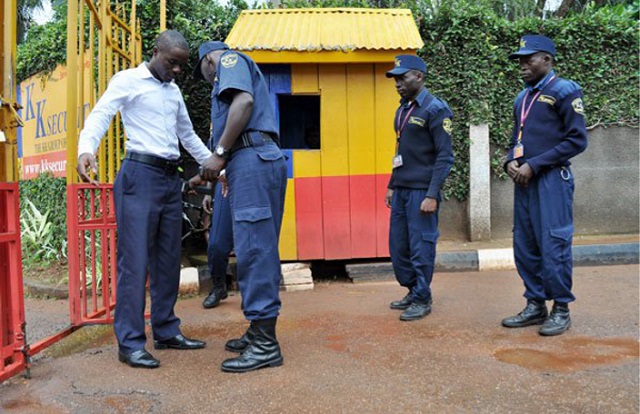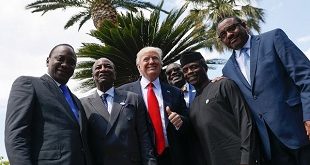
Peeling back the layers on the role of private security companies in Africa
| Jonathan Powell, Christopher Michael Faulkner & Joshua Lambert | Private military and security companies have been regular fixtures in conflicts across the globe. For Africa, these corporations became increasingly visible with their role in civil wars in Angola and Sierra Leone.
More recently, reports in 2015 indicated the Nigerian government contracted a number of companies to aid in counterinsurgency efforts targeting Boko Haram.
And a Russian contractor, the Wagner Group, has been actively involved in Sudan and the Central African Republic. Its involvement has included signing contracts that grant it access to potential diamond and gold deposits. Such agreements have been typical of private military and security companies, particularly in Africa. This was the case with Executive Outcomes’ deal with Sierra Leone’s government in the early 1990s.
But understanding when and why these corporations are able to deliver effective services to clients has remained an elusive task.
What are they?
Private military and security companies are defined as legal entities that provide clients with a wide array of military and security services. This includes combat-oriented tasks, military or security training, logistical support and armed security and guarding. It can also include weapons procurement and installation.
As a multibillion dollar industry, the list of companies is continually growing, as is demand for their services. In late 2018, the U.S. Department of Defense reported nearly 50,000 contractors working under the auspices of such companies. Over 28,000 were in Iraq, Afghanistan, and Syria.
Beyond the obvious role of combat support, these companies have also been increasingly used in services as diverse as anti-poaching efforts and combating maritime piracy.
Civil war role
For many governments, private military and security companies can become an attractive resource. This is particularly true in cases where the capacity of national armed forces is low and the government faces strong threats.
But, how well do they perform?
One recent investigation argued that contracting private military and security companies during wartime can actually increase military effectiveness – and with it, the intensity of conflict. Other scholars have explored their impact on the duration of conflicts. This research has suggested that conflicts in which higher numbers of these companies are contracted by a government are likely to be shorter than those with few or none.
The rationale here is that a more competitive market incentivises the companies to perform better so they can win more contracts.
Our recent assessment of private military activity, along with work from academics Deborah Avant and Kara Kingma Neu, questions this logic.
We set out to try and understand how these companies interact. We also wanted to know the effect of these interactions.
Competition or complementary?
Private military and security companies frequently do compete over contracts. But we also found that once they were contracted they often collaborated. This was especially likely when a task was very big or when specialised services were needed.
Observing and evaluating the delivery of specific services is difficult. Some research has compounded this difficulty by assessing effectiveness with generic measures such as conflict duration rather than whether the terms of the contract were met.
It’s difficult accessing the terms of specific contracts because all the entities involved are private companies. This means that identifying how well they’re meeting the requirements of a specified contract is often unknown. This is a huge challenge for researchers who rely primarily on quantitative assessments to explore these dynamics.
We also drew attention to how quantitative analyses, in the absence of in-depth investigation, could lead scholars to miss important dynamics in how these companies influence conflicts.
 The Independent Uganda: You get the Truth we Pay the Price
The Independent Uganda: You get the Truth we Pay the Price



This is good information on private security firms. it helps those of us involved in the industry to have a wide perspective of the same
Patrick
CEO Pyramid Security Group.